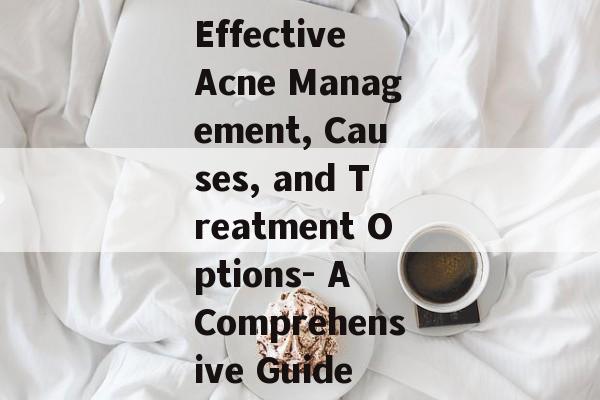The Basics of Acne: Understanding the Condition

Acne occurs when hair follicles become clogged with oil and dead skin cells. This typically results in whiteheads, blackheads, or pimples. The most common areas affected are the face, neck, chest, back, and shoulders. Hormonal changes, genetics, and lifestyle factors can contribute to the development of acne.
Understanding the root causes of acne is crucial for effective management. It's not just a cosmetic issue; it can impact self-esteem and mental health. By recognizing the signs and symptoms, individuals can seek appropriate treatment.
Causes of Acne: A Deep Dive
Several factors can trigger acne breakouts. Hormonal fluctuations during puberty, menstruation, or pregnancy can increase oil production, leading to clogged pores. Genetics also play a significant role in determining an individual's susceptibility to acne.
Lifestyle choices, such as diet, stress, and lack of sleep, can exacerbate acne. Additionally, certain medications, including corticosteroids and hormonal treatments, can trigger acne. Identifying these triggers is essential for developing a personalized treatment plan.
Acne Treatment Options: Finding What Works
There are various acne treatment options available, ranging from over-the-counter (OTC) products to prescription medications. Topical treatments containing ingredients like benzoyl peroxide, salicylic acid, and retinoids are commonly used to treat mild to moderate acne.
For severe cases, dermatologists may prescribe oral medications such as antibiotics, birth control pills, or isotretinoin. Laser therapy and chemical peels are also options for reducing acne scars and improving skin texture. It's essential to consult a dermatologist to determine the most suitable treatment.
Acne Prevention: Daily Skincare Routine
Preventing acne involves maintaining a consistent skincare routine. Washing the face twice a day with a gentle cleanser can help remove excess oil and dead skin cells. Avoiding harsh scrubs and opting for non-comedogenic products can prevent pore clogging.
Additionally, individuals should avoid touching their face, which can transfer bacteria and cause breakouts. Regularly changing pillowcases and showering after exercise can also help prevent acne. A balanced diet, adequate sleep, and stress management are crucial for overall skin health.
The Role of Diet in Acne Management
Diet has a significant impact on skin health. Consuming a diet rich in fruits, vegetables, and whole grains can help reduce inflammation and improve acne. Foods high in sugar and processed items can exacerbate acne, so it's advisable to limit their intake.
Hydration is also essential. Drinking plenty of water helps maintain healthy skin by flushing out toxins. While there's no one-size-fits-all diet for acne, paying attention to individual food triggers can be beneficial.
Acne Myths vs. Reality: Separating Fact from Fiction
There are numerous myths surrounding acne. Contrary to popular belief, chocolate and greasy foods don't directly cause acne, although they can worsen existing breakouts. Similarly, popping pimples can lead to scarring and prolonged healing.
Another myth is that sunlight can clear acne. While some sun exposure can initially improve the appearance of the skin, it can lead to skin damage and exacerbate acne in the long run. It's important to rely on scientific evidence and consult with dermatologists for accurate information.
In conclusion, acne is a complex skin condition that requires a tailored approach for effective management. By understanding the causes, exploring treatment options, and adopting a healthy lifestyle, individuals can achieve clearer, healthier skin. Remember, it's essential to seek professional advice from a dermatologist for personalized guidance and treatment.










评论列表